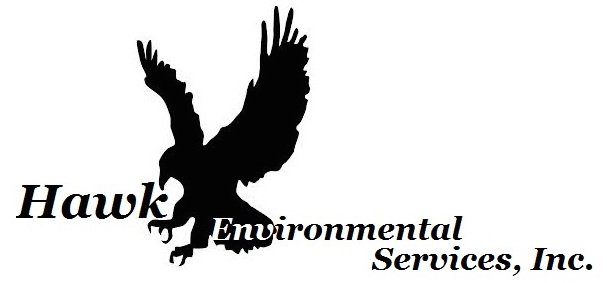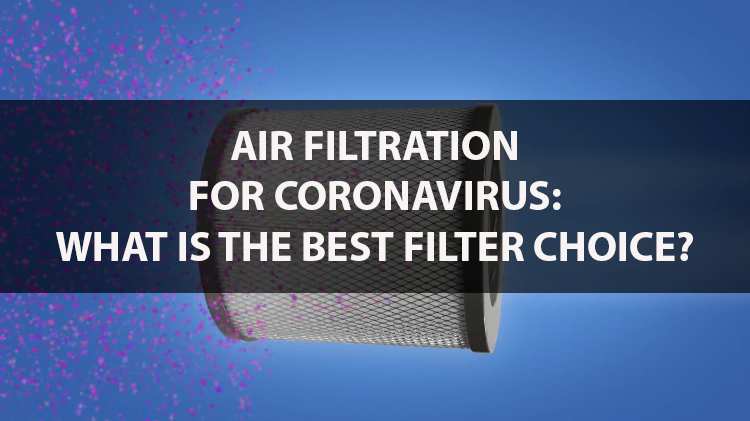Why HEPA is the best choice for combatting coronavirus:
As the global pandemic of the disease known as COVID-19 grows in size, businesses and home owners are trying to find ways to protect themselves, their employees, and their customers. We know that one of the ways that the coronavirus can be transmitted is through respiratory droplets in the air. Improving air quality sanitation with air filters, air purifiers, or air scrubbers is becoming a vital tool to reduce the spread of this disease.
Sorting through the claims of cutting-edge technology, and virus eradication jargon can be a complex and daunting task for the average consumer. When making your decision it’s important to understand how the virus travels through the air, and to rely on trusted sources and proven science that can lessen the spread of disease. Let’s go over the facts behind ways to reduce COVID19 infection from airborne exposure.
The corona virus is known to travel and spread through the air on droplets of human respiratory liquids. These liquids include mucus and phlegm from a coughing or sneezing.
The CDC reports: “The virus is thought to spread mainly from person-to-person. Between people who are in close contact with one another (within about 6 feet). Through respiratory droplets produced when an infected person coughs or sneezes. These droplets can land in the mouths or noses of people who are nearby or possibly be inhaled into the lungs.”
Currently, there is no data to suggest that the virus itself can become airborne without these droplets, in the manner that much more infectious diseases such as measles can spread. The best way to clean the air of potentially infectious droplets is physical removal with a media that is fine enough to catch even the small and invisible droplets. This media would be referred to as HEPA (high-efficiency particulate air) filtration. The CDC explicitly recommends HEPA filtration in areas where infected people may be sharing air spaces with non-infected persons.
Excerpt from CDC guidance on facilities dealing with infected persons: “Ideally, the patient should not be placed in any room where room exhaust is recirculated within the building without HEPA filtration.”
Many companies and products espouse UV lights as a way to kill the virus. While this is technically true, there is very little evidence that shining any type of light on to moving air will be effective at killing the coronavirus that causes COVID-19. With appropriate exposure strength and durations, UVC lights are known to be excellent at killing virus and bacteria on surfaces. The time that these lights shine on a particle flowing through the air is minimal and unlikely to be effective at killing aerosolized viral organisms.
As per the EPA: “There is no standard measurement for the effectiveness of UVGI cleaners. Typical UVGI cleaners used in homes have limited effectiveness in killing bacteria and molds. Effective destruction of some viruses and most mold and bacterial spores usually requires much higher UV exposure than is provided in a typical home unit.”
It’s important to understand the size of the particles that can carry the coronavirus, so that we can choose the right method to remove them. Respiratory droplets are generally 0.6 – 1000 microns in size, thus the Hawk Environmental line of products are the clear choice for limiting the spread of airborne droplets that may carry the corona virus that causes COVID-19, as well as for allergens, dust, wildfire smoke, and many other irritants.
Hawk Environmental air filtration products exceed HEPA filtration efficiency (99.988% removal 0.3 microns and larger) and functions near ULPA efficiency (removes 99.960% removal 0.1 microns and larger).
Hawk Environmental Services Offerings related to COVID-19 Pandemic
- Hawk Environmental MultiPro
- Variable Speed, 800CFM, portable, HEPA air scrubber
- Hawk Environmental AirWash 350/675
- Designed to be installed within a home or office’s HVAC ducting
- Same HEPA filter media as the MultiPro
- 2 main sizes at 350 CFM and 675 CFM
- Surface swab surrogate test for coronavirus cleaning verification
- Designed to keep businesses and facilities operational
- Mail-out and mailed-back to prevent need for extraneous staff to enter the building
- Determines if human respiratory organisms on surfaces have been fully killed/disinfected
- To be used by critical infrastructure locations such as Costco, distribution warehouses, trucking firms, food production and delivery locations, municipalities, and utilities
Comments are closed.

